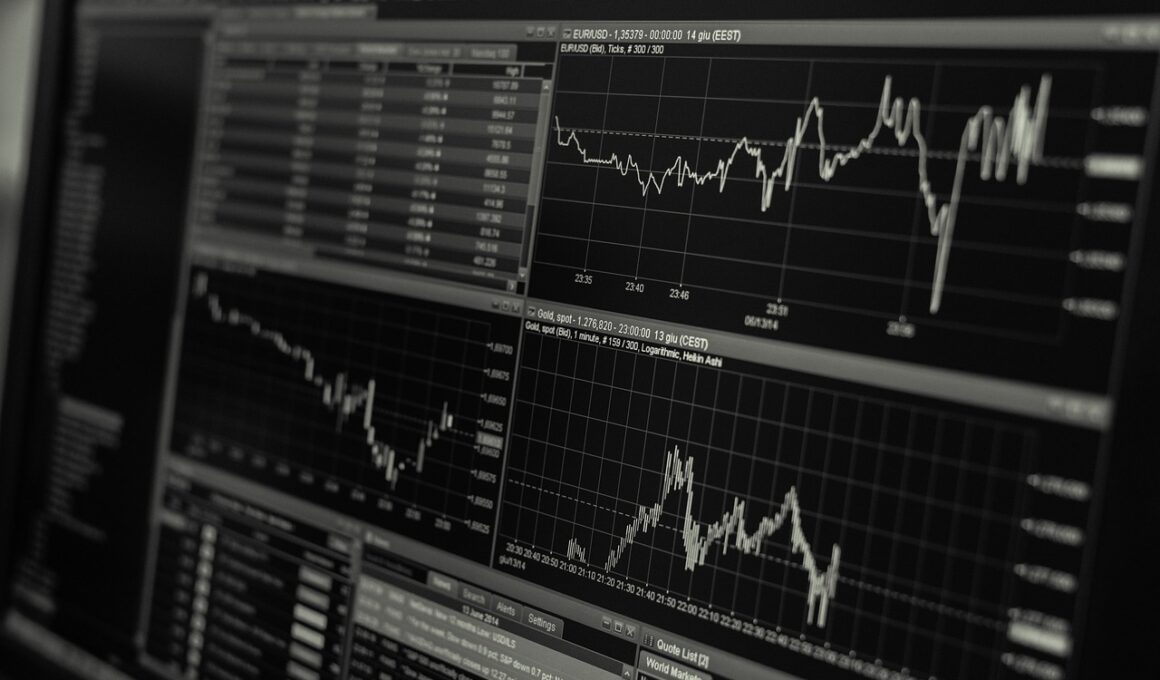The Legal Framework Governing Insider Trading
Insider trading refers to the buying or selling of securities based on non-public, material information about a company. This practice is illegal and poses serious risks to the market’s integrity and fairness. To combat insider trading, various regulations have been enacted globally to create a fair environment for all investors. One primary regulation in the United States is the Securities Exchange Act of 1934. This act prohibits trading based on undisclosed material information. The act seeks to preserve the market’s function by holding all investors accountable. Investors must understand their obligations under these laws, as violations can result in severe legal penalties. The role of government enforcement agencies, like the U.S. Securities and Exchange Commission (SEC), is also crucial. The SEC investigates allegations of insider trading to maintain market integrity. Firms also implement stringent internal controls to prevent information leaks. Compliance programs, regular training, and awareness initiatives are essential in promoting ethical behavior among executives and employees. Ultimately, a robust legal framework for insider trading is vital for protecting all market participants and fostering trust in the financial system.
Another primary regulation is the European Market Abuse Regulation (MAR), which governs market conduct across European Union nations. This regulation replaced earlier directives and aimed to harmonize rules across member states. MAR addresses both insider trading and market manipulation. It establishes clear definitions and penalties for individuals and organizations found guilty of abusive practices. MAR’s key provisions include requirements for issuers to publicly disclose information that could impact their stock prices. Companies must also establish mechanisms to prevent insider trading. Each member state has its regulatory authority to oversee compliance and enforce penalties against violators. It is important for companies to have robust systems and processes that align with MAR to avoid significant fines or sanctions. Naturally, compliance with MAR not only safeguards the companies involved but also protects investors by ensuring transparency. Although the regulations may vary from region to region, the common goal remains the same: to ensure that financial markets operate fairly. As such, knowing different legal frameworks governing insider trading is essential for investors, traders, and executives alike.
To effectively combat insider trading, various countries have established different implementations of their legal frameworks. Laws often define who is considered an insider, such as company executives, employees, and even contractors. Typically, these individuals have access to critical information that affects a company’s stock price. Defining material information is crucial as it guides market participants on what constitutes improper trading. Regulations also address the consequences of insider trading violations, which often include hefty fines and imprisonment. The need for a worldwide approach to suppress insider trading is evident, given the global nature of today’s markets. Investigations into insider trading usually involve significant collaboration between various regulatory bodies, including those from different countries. Furthermore, international agreements and treaties help facilitate the exchange of information and coordinate enforcement actions. This unified stance strengthens the global fight against insider trading and encourages compliance from multinational corporations. While different countries may adopt unique philosophies towards implementation, the ethical obligation remains the same. Emerging technologies also play a role in monitoring trading patterns and identifying suspicious behaviors to combat these practices.
Consequences of Insider Trading
The consequences of insider trading can be severe for both individuals and corporations involved in such practices. Penalties may include substantial fines and imprisonment for offenders, depending on the severity of their actions. For individuals, engaging in insider trading often leads to the loss of professional licenses and jobs, forever tarnishing their reputations in the financial sector. For corporations, the repercussions can be even more damaging. Firms may face significant fines levied by regulatory authorities, harm to their public image, and a decline in shareholder trust which is vital for their success. Additionally, brands may ultimately suffer reputational damage that can impact their market positions. Consequently, organizations invest in training and compliance to mitigate risks associated with insider trading. They strive to cultivate a culture of ethical conduct and foster transparency within their ranks. Prevention measures including detailed compliance policies, regular audits, and employee education initiatives play an essential role in discouraging insider trading. These proactive approaches can help develop a robust internal framework that safeguards authentic practices and encourages healthy market activity for the benefit of all investors.
Moreover, public awareness and education about insider trading contribute significantly to its prevention. Increased knowledge among retail investors ensures that all participants understand the implications of insider trading, how it impacts the market, and their responsibilities. Social awareness campaigns can help address misconceptions about trading behaviors and foster a shared understanding of market integrity’s importance. By promoting ethical investment practices, authorities can instill confidence among investors, contributing to a more resilient financial ecosystem. It’s fundamental that regulations not only govern behavior but also inform and educate the public about the value of ethical standards. Collaborations with various stakeholders, including financial institutions and educational organizations, can enhance outreach initiatives aimed at promoting ethical trading practices. Enhanced reporting mechanisms also empower individuals to report suspicious activities without fearing retribution. Encouraging whistleblowing can lead to identifying potential insider trading incidents before they escalate. These combined efforts create a comprehensive approach to the issue. Ultimately, a collective commitment to ethical practices fosters trust and ensures a more stable financial market environment.
Global Perspectives on Insider Trading Laws
Globally, perceptions and regulations surrounding insider trading vary widely. Some countries, such as the United States and those in the European Union, have stringent laws designed to mitigate insider trading. In contrast, others might have more lenient regulations or enforcement practices, leading to differing market behaviors. The global disparity highlights the need for harmonized standards to promote fair competition across international borders. Various case studies illustrate how distinct regulatory environments affect market integrity and investor trust. For example, in jurisdictions where rules are poorly enforced, investors may be more hesitant to participate, leading to reduced market liquidity. Conversely, nations with rigorous enforcement may attract more significant investment and promote healthy trading practices. International organizations, such as the International Organization of Securities Commissions (IOSCO), work to establish frameworks for effective regulation worldwide and facilitate cooperation among different countries. As the world becomes increasingly interconnected, addressing insider trading becomes paramount to policymakers seeking to protect market integrity. Moving towards consensus on regulations can help create fairer and more transparent markets for all investors.
In conclusion, the legal framework governing insider trading is complex, multifaceted, and crucial for ensuring market integrity. While regulations differ across jurisdictions, the goals remain uniform. They aim to protect investors and maintain fairness in securities trading environments. Strong measures, penalties, and robust frameworks contribute significantly to deterring illicit trading behaviors and holding wrongdoers accountable. Continuing education and public awareness initiatives remain essential, as they enhance investors’ understanding of their roles and obligations under the law. Ultimately, combating insider trading necessitates collaboration among various stakeholders, including regulators, corporations, and investors. By fostering a commitment to ethical trading practices, the financial markets can thrive while safeguarding legitimate activities. As insights evolve regarding potential loopholes, it is vital for regulatory authorities to adapt and strengthen existing frameworks. The financial community’s vigilance in addressing insider trading is essential for restoring and maintaining trust among investors. It enhances investor confidence and encourages market participation while ensuring that all market players follow the same rules in pursuing their financial goals. This cooperation creates a more dynamic and sustainable financial marketplace for everyone.


